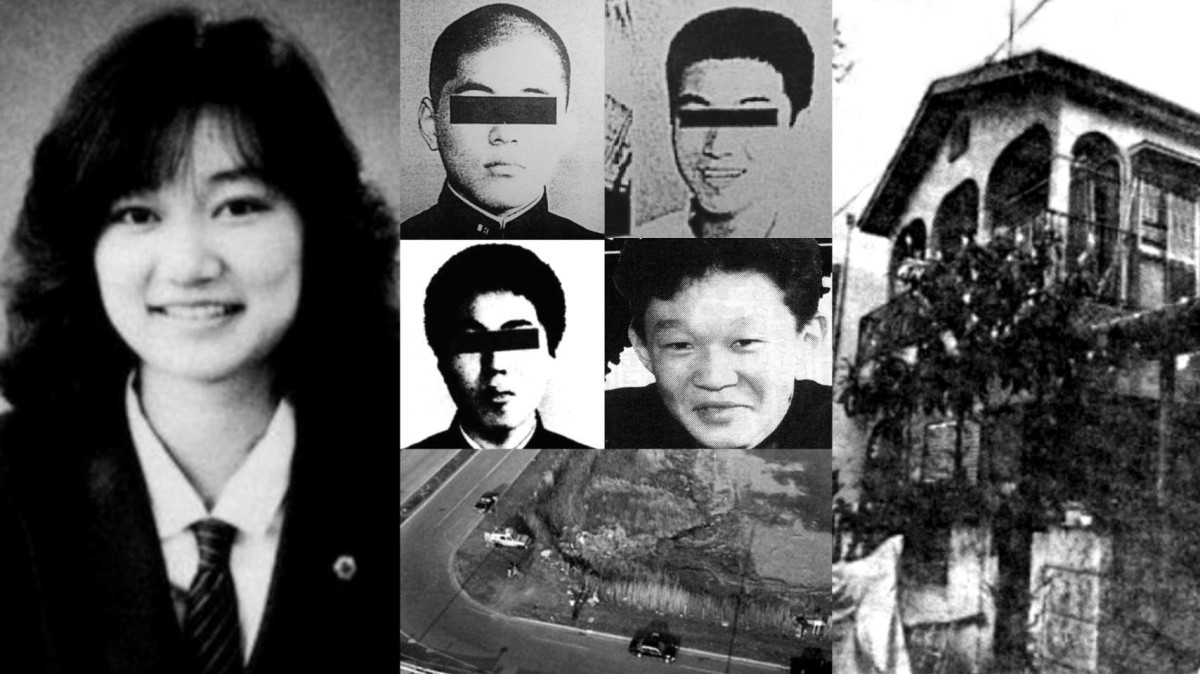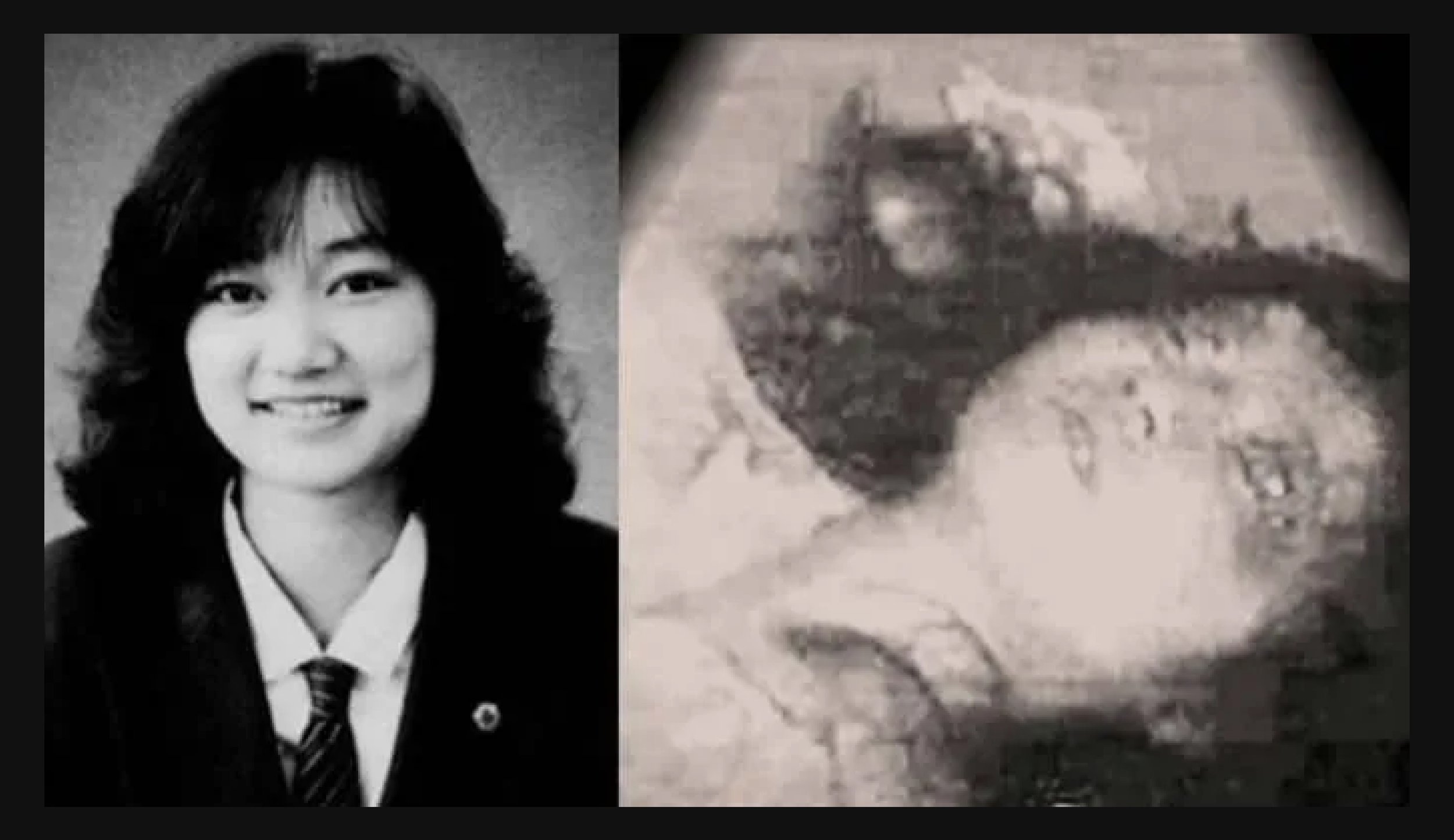The Junko Furuta Case: A Tragedy & Legacy
Could a 17-year-old girl truly endure 44 days of unimaginable torture, and what does it say about the darkest corners of human capability? The Junko Furuta case remains one of the most horrific examples of human cruelty, a chilling testament to the depths of depravity, and a glaring example of systemic failures within Japan's justice system.
In the autumn of 1988, in the city of Misato, Tokyo, a young woman named Junko Furuta, a Japanese high school student, vanished. This was the beginning of a nightmare that would shock the world and expose the brutal realities that can exist behind closed doors. On November 25th of that year, while cycling home from her job, Furuta fell prey to a carefully laid trap. The perpetrators, a group of teenagers, had set a ruse, and Furuta, unknowingly, rode straight into it. Her abduction initiated a 44-day ordeal of unimaginable brutality that would ultimately end in her murder. The individuals responsible for this heinous crime were Hiroshi Miyano, J Ogura, Shinji Minato, and Yasushi Watanabe. Their names are forever etched in infamy.
The details of Furuta's captivity are difficult to recount, the level of violence inflicted on her was extreme. She was held captive in the home of Shinji Minato, where the ringleader, Hiroshi Miyano, began inviting others to join in the sexual assault and torture of the young woman. The abuse escalated, and Furuta was subjected to unspeakable acts of physical and psychological torment. This was not an act of passion, but a calculated and prolonged campaign of cruelty, designed to break her spirit and extinguish her life.
- Michel Stern Inside Lisa Kudrows Husbands Life Love Story
- Jailyne Ojeda Leak Privacy Concerns What You Need To Know
The suffering Furuta endured was not only physical, but mental. These acts left an indelible mark on the minds of many, highlighting the darkest corners of humanity and the terrifying potential for evil. The lack of appropriate intervention from the police, and the ultimately lenient sentences handed down to the perpetrators, would be a constant source of public outrage and scrutiny.
Furuta was born on January 18, 1971, and grew up in Misato, Saitama Prefecture, where she lived with her parents, an older brother, and a younger brother. Her life, tragically cut short, serves as a stark reminder of the vulnerability of individuals and the importance of community vigilance.
The legal proceedings that followed the discovery of Furuta's murder were, in many ways, as shocking as the crime itself. The trial began on July 31, 1989, in Tokyo. The four defendants initially pleaded guilty to committing bodily injury that resulted in death rather than murder, a strategic move that would have significant repercussions on their sentences. The juvenile law in Japan, which was in effect at the time, also had a substantial impact on the sentencing decisions. Because the perpetrators were under the age of 18, the sentencing was significantly more lenient than it would have been had they been adults. Two other individuals, also 16 at the time, were involved in the sexual assault of Furuta, although not in her murder. They were sentenced to juvenile detention. After their release, both got married and had children, and claimed to have disclosed their involvement in the case to their spouses.
- Cho Seung Woo Relationship Status Personal Life Explored
- Kristi Noems Transformation Before After Whats Changed
| Category | Details |
|---|---|
| Full Name | Junko Furuta |
| Date of Birth | January 18, 1971 |
| Place of Birth | Misato, Saitama Prefecture, Japan |
| Education | High School Student |
| Tragic End | Abducted, tortured, raped, and murdered |
| Date of Death | January 4, 1989 |
| Age at Death | 17 years |
| Place of Death | Kt, Tokyo, Japan |
| Perpetrators | Hiroshi Miyano, J Ogura, Shinji Minato, Yasushi Watanabe |
| Legal Proceedings | Trial began July 31, 1989, in Tokyo; Leniency due to juvenile status. |
| Impact | Inspired films, manga; sparked legal reform discussions; raised awareness of violence against women |
| Legacy | A reminder of the importance of speaking out against violence and abuse. |
The repercussions of the Furuta case extended far beyond the immediate tragedy. It spurred a national conversation in Japan about the need for legal reform, and raised awareness of violence against women and the treatment of the youth in the judicial system. The case laid bare the shortcomings of a legal system, particularly those of the juvenile law. It prompted a re-evaluation of how young offenders are treated and how society addresses the issue of violence and abuse.
The story of Junko Furuta is not just a tale of cruelty, it is an example of how trauma can potentially alter the very structure and function of the brain. While it is impossible to directly examine Furuta's brain, her case provides a tragic framework for understanding the potential neurological impact of extreme and prolonged abuse. The human brain is an incredibly adaptable organ, but the enduring effects of prolonged trauma are, and can be, devastating.
The case of Junko Furuta has been revisited in numerous media formats. In 2004, a feature film, "Concrete," was based on the case, offering a fictionalized, but powerful, portrayal of the events. In the wake of this case, it has been the subject of documentaries, and has been referenced in numerous books and articles exploring the case and its larger societal implications.
The diligence of police investigations could have brought an earlier end to the unimaginable ordeal suffered by Junko Furuta. The potential failures of the police in conducting a comprehensive search of the Minato residence may have led to her death. The slow rate of investigation allowed the torture to prolong.
The Junko Furuta case stands as one of Japan's most shocking and tragic criminal incidents. It drew worldwide attention for its brutality and the young age of the victim involved. The crime has left an indelible mark, highlighting the darkest corners of humanity. The legal fallout from this case has raised important questions about the country's justice system. The societal impact of the case has sparked crucial conversations about bullying, violence, and the treatment of women.
The impact of this case is felt to this day. The case inspired several films and a manga illustrated by Kamata Youji. The media attention surrounding the case illustrates the deep societal impact and the lasting mark left by this crime. Junko Furuta's tragic story reminds us of the importance of speaking up against cruelty and injustice. Her ordeal has inspired many to advocate for victims of violence and abuse, as the case has raised awareness about bullying and violence against women. The case served as a catalyst for change and a reminder of the importance of speaking out against violence and abuse.
Furuta was a good girl who lived in Misato, Japan. Her life was filled with the promise of youth, tragically stolen by the depravity of others. Her death underscores the vulnerability of young people, and the importance of vigilance.

.jpg?format=2500w)

Detail Author:
- Name : Prof. Isabelle Tillman MD
- Username : bethany.greenholt
- Email : considine.jordan@fadel.com
- Birthdate : 1972-01-05
- Address : 189 Alvina Path Port Sven, AL 41053-4181
- Phone : 253-633-0359
- Company : Ryan-Abshire
- Job : Motion Picture Projectionist
- Bio : Sapiente nam amet eos officia. Reprehenderit repellat unde sit repellendus aperiam molestias dolor. Sed asperiores est similique placeat animi nihil exercitationem.
Socials
linkedin:
- url : https://linkedin.com/in/grimesf
- username : grimesf
- bio : Libero autem adipisci nostrum minima qui qui.
- followers : 2967
- following : 394
tiktok:
- url : https://tiktok.com/@frankie_dev
- username : frankie_dev
- bio : Labore adipisci voluptatem dolores consequuntur beatae ratione.
- followers : 4813
- following : 1561
instagram:
- url : https://instagram.com/frankie.grimes
- username : frankie.grimes
- bio : Error aut pariatur exercitationem exercitationem quia. Ipsa voluptatibus illo ad eius.
- followers : 4161
- following : 804